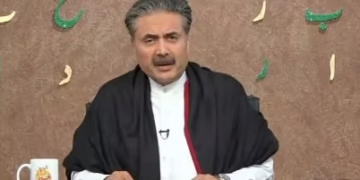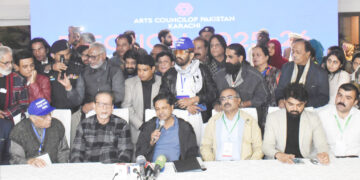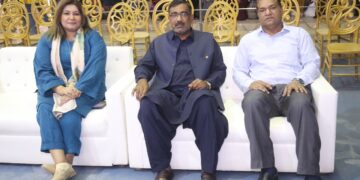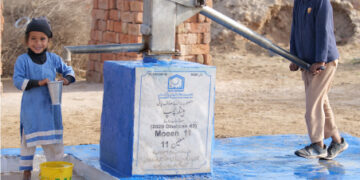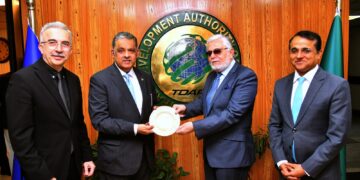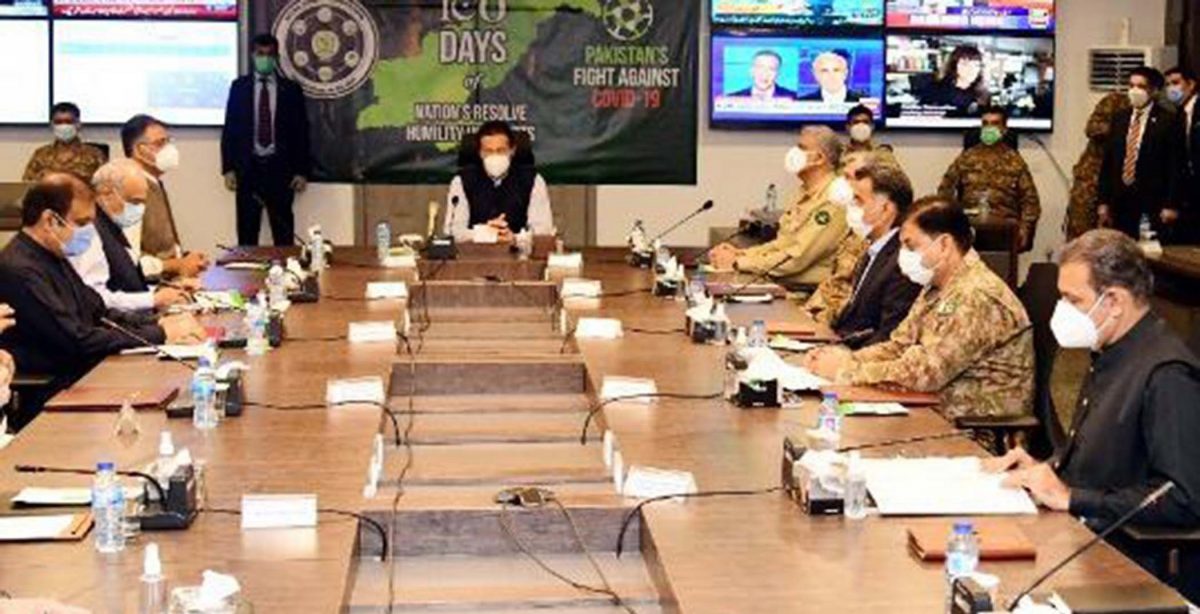KARACHI – Emphasizing removing gender parity for skills development in the labour market, Syed Mazhar Ali Nasir, Senior Vice President, FPCCI, has said that it would not only ensure socio-economic development especially of the low-income population but also contribute significantly towards national economic stability.
“Everybody should play their role for Pakistan to develop and to acquire sustainability in social and economic aspects. Women are half of the country’s population and it is essential to provide accurate pathways for women for accessing new opportunities and for facilitating high participation of women in the labour market,” Syed Mazhar remarked at a webinar ‘Gender-parity in TVET for socio-economic prospects of Pakistan’.


The webinar was organized by European Union-funded TVET Sector Support Programme (SSP), Germany and Norwegian Embassy.
The purpose of the event was to emphasize the inclusion of women in the labour market through skills development and to aware the general public of the significance of technical education and vocational training for women to access and excel in the labour market.
Mr Markus Strohmeier, Managing Director and CEO Siemens Pakistan; Mr Tobias Becker, Country Director, GIZ Pakistan; Syed Mazhar Ali Nasir, Senior Vice President, FPCCI; and Qurrat Ul Ain Naveed, an entrepreneur, skills and entrepreneurship expert, were the panellists of the webinar.
The webinar addressed the topics of gender balance, equality, improved access and quality of skills training as well as the challenges which are faced in real life leading to gender-incomparability in TVET as well as the labour market.
The TVET SSP has been commissioned by the German Federal Ministry for Economic Cooperation and Development (BMZ) and is being implemented by the Deutsche Gesellschaft für Internationale Zusammenarbeit (GIZ) GmbH in close collaboration with the National Vocational and Technical Training Commission (NAVTTC), provincial Technical Education and Vocational Training Authorities (TEVTAs) and a large number of private sector organizations.
The TVET SSP has been striving since the inception of its second face for more women inclusion through access and a conducive environment so that more technical skills are learnt by women and the gender gap is reduced for a durable, positive and strong impact on economic productivity.
Giving his expert opinion in the webinar, Markus Strohmeier said that public-private partnership in the TVET SSP is the way forward for the inclusion of women. “This initiative is the means to polish their skills, and to compete and achieve their goals,” he explained.
Addressing the audience, Tobias Becker shed light on the role of GIZ Pakistan on behalf of the German Development Cooperation in implementing the TVET reforms in Pakistan. He said, “GIZ Pakistan in partnership with NAVTCC is successfully implementing the TVET SSP and is delighted to see the positive outcome of this Programme,”
He also mentioned that the people of Pakistan are willing to enhance their skills and compete in the international labour market for better returns.
Moreover, he revealed that from the 50,000 vocational graduates of TVET SSP, more than 30 per cent of them are women. This clearly demonstrates that women can succeed in a gender-inclusive TVET.
Qurrat Ul Ain Naveed remarked that technically and vocationally trained youth, especially women are an asset for the country and said the TVET SSP is significantly contributing to making women confident and empowered. “Skills of women are enhanced by training programmes like TVET SSP,” she maintained. In the webinar, Moderator Sonia Omair, Development Communication Advisor GIZ Pakistan, discussed the significance of gender-parity in TVET for the socio-economic prospects of Pakistan. She said that technically trained youth, and particularly more women, contributing to the labour market will lead to a promising future of the country.



